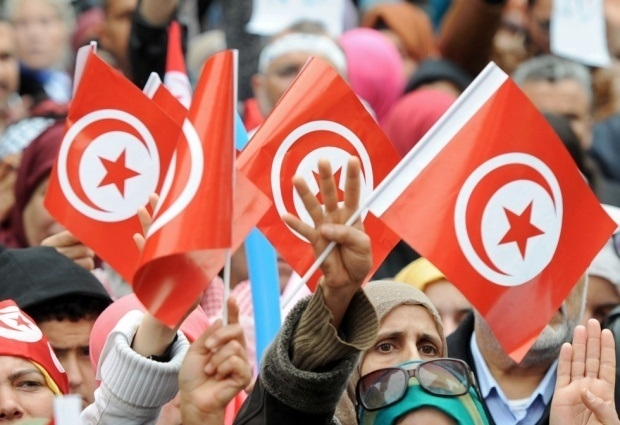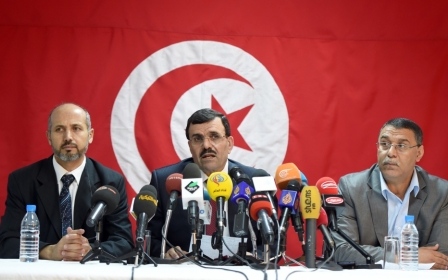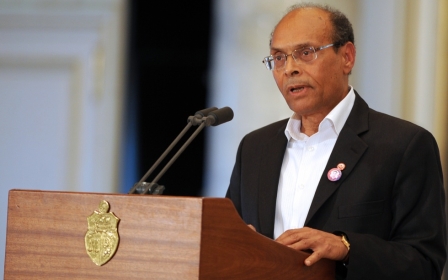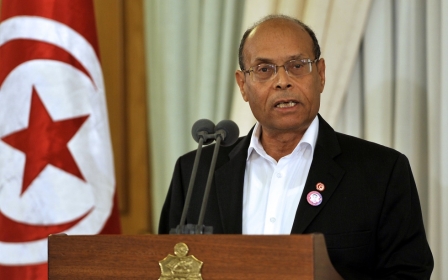Tunisia sets dates for parliamentary, presidential polls

Tunisia's National Assembly approved Wednesday the proposed dates of parliamentary and presidential polls due to take place this year under a deal to end a political crisis.
After months of negotiations among Tunisia's political parties, the assembly approved October 26 for the legislative election and November 23 for the first round of the presidential poll.
Some 125 deputies voted in favour of the timetable, which also envisages a presidential run-off before the end of 2014, while 15 voted against and 17 abstained.
"It's a historic step. We are pleased that the electoral calendar has been fixed, because it gives hope for the future of Tunisia," MP Mahmoud Baroudi told AFP.
The elections would consolidate the gains of an accord in January to end months of political crisis, which had blocked the democratic transition in the birthplace of the Arab Spring.
Since the revolution that toppled longtime dictator Zine El Abidine Ben Ali in January 2011, Tunisians have awaited the formation of permanent state institutions.
Ahead of the debate on the election law, assembly speaker Mustapha Ben Jaafar stressed "the crucial importance ... of this last stage in the constituent process."
The political parties only agreed on the order of the elections earlier this month, with the parliamentary poll taking place before the presidential vote.
A presidential candidate can secure the post from the first round if they manage to garner a majority (50 percent plus one) of the vote.
"In case of runoff for the presidential elections, the Independent Higher Authority for the Elections (ISIE) will set the date, in implementation of the provisions of the Constitution and articles 102, 103 and 112 of the organic law on elections and referendum, proposed dates should not be later than December 31, 2014," reported TAP, the country's state news agency.
The electoral organising commission had urged the parties to swiftly reach an accord, given the tight timetable and the requirement under the country's new constitution that both votes take place in 2014.
According to Tunisia Live website, twelve civil society groups established on Monday a coalition to monitor the electoral process with the intention of preventing violations, named the 'Civil Coalition for Elections'.
In the first legislative elections held in 2011 following Ben Ali's ouster, the Islamist party Ennahda won the largest share of seats in the assembly, which was due to be replaced by a permanent parliament in October 2012.
But the process was heavily delayed by political crises, which culminated with the assassination last year of two opposition MPs.
Under an agreement finally reached to break the deadlock, parliament ratified the new constitution in January and Ennahda handed power to an interim government of independents prior to fresh elections later this year.
Tunisians not already on the electoral list began registering for polls on Monday.Meanwhile, Tunisian Secretary of State for Foreign Affairs Faysal Gouia said he believes the Arab Spring has succeeded in his country – despite setbacks faced in other countries – due to Tunisia's active and educated civil society.
"A culture of dialogue allowed has Tunisia to climb the mountain of revolution without falling," Gouia told Anadolu Agency on the sidelines of a foreign ministerial meeting of the African Union in Equatorial Guinea.
"The homogeneity of Tunisian society, coupled with a culture of political participation that includes women, contributed to the success of Tunisia's revolution," he said.
Tunisia's 2011 uprising triggered a series of similar uprisings across the region.
Those uprisings ultimately led to the ouster of longstanding dictators in Tunisia, Egypt, Libya and Yemen, and to civil war in Syria.
New MEE newsletter: Jerusalem Dispatch
Sign up to get the latest insights and analysis on Israel-Palestine, alongside Turkey Unpacked and other MEE newsletters
Middle East Eye delivers independent and unrivalled coverage and analysis of the Middle East, North Africa and beyond. To learn more about republishing this content and the associated fees, please fill out this form. More about MEE can be found here.




